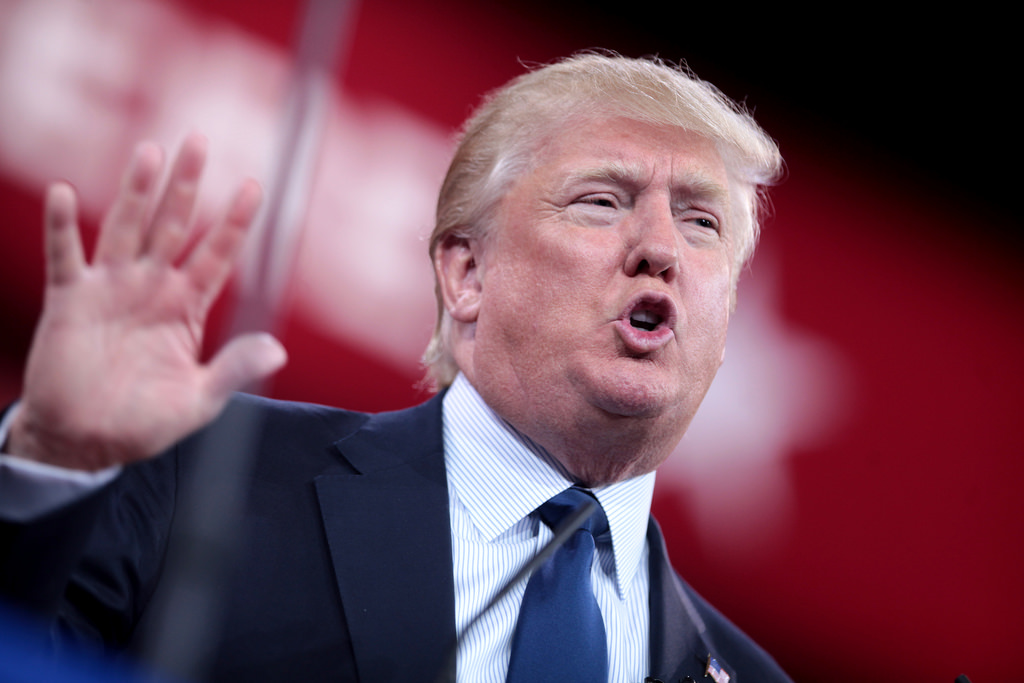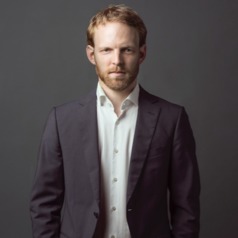Donald Trump’s inauguration on January 20 exemplifies a phenomenon that is likely to shape global politics for years to come: the rise of the strongman.
The term is broadly used to describe law-and-order candidates with authoritarian tendencies who weaken institutions and concentrate power in the executive. As leaders, they tend to reject pluralism (the idea that political power is distributed among many institutions, both governmental and nongovernmental). Instead, they often claim to be the exclusive representatives of “the people”.
Turkey’s Recep Tayyip Erdoğan, Russia’s Vladimir Putin and Venezuela’s Nicolás Maduro are classic strongmen. Calling their opponents “unpatriotic” and implying they are guided by “foreign interests”, these politicians consistently articulate a moral form of anti-pluralism.
Strongmen thrive on polarisation: once in office, all three of these world leaders have described their opposition as illegitimate, immoral and “enemies of the people”; Maduro even called those who voted against him traitors.
Does this remind you of any recently triumphant American politician? Hint: in November 2016 Donald Trump referred to “millions of illegal voters” to explain why he lost the popular vote.
Of course, some strongmen are more authoritarian than others, and a firm institutional framework can help limit leaders’ room for manoeuvre. Is Trump in the populist big leagues, with the likes of Putin or Erdoğan? We’ll find out soon.
A year of democratic challenges
This year will see strongmen in power in Washington, Budapest, Moscow, Ankara, Manila and Caracas. What does this situation, unprecedented in recent history, mean for global politics?
Above all, it symbolises a profound crisis of democracy, with a real risk of contagion. In their most extreme form, as in Venezuela or Russia, such leaders no longer organise free elections: they’re unnecessary because those presidents already know what “the people” really want.
But strongmen can also be electorally competitive when voters feel that traditional political institutions aren’t meeting expectations, as we’ve seen in the Philippines.
The Brexit and Trump populist successes did not take place in small countries with limited visibility. Rather, they occurred in the world’s two most mature democracies, which — despite many missteps — have historically played an important role in the flourishing of democracy across the world.
So one consequence of a populist winning the White House will be a decline in American soft power. In fact, Trump’s election has already had a negative affect in this area. The US is less able to attract and co-opt support, rather than to coerce by force. This makes the case for democracy elsewhere in the world much harder.
This will be particularly true if Trump moves forward with some of his campaign promises to discriminate against people of Muslim faith. The stronger anti-Islam currents grow in Western democracies, the less the US, among others, can criticise governments in China, Myanmar and elsewhere for how they treat their religious minorities.
Under Trump, the US can also be expected to spend less money on international human rights and democracy groups. One may rightly criticise US foreign policy on many fronts, but we must recognise the massive US government investment in NGOs, journalism and opposition groups living under dictatorships around the world – to the tune of US$10 billion per year over the past decade.
Trump, by contrast, has made clear that he thinks little of defending or promoting democracy abroad, and has spoken highly of strongmen such as Putin, Hungarian President Viktor Orbán and Philippines President Rodrigo Duterte. Both stances will reduce pressure on authoritarian governments around the world.
Endangered: truth, plurality and stability
The global resurgence of strongmen has coincided with the rise of the “post-truth” era.
This trend threatens to undermine democracies’ key advantage over authoritarian regimes: democracies make ample use of available data to determine public policy and enjoy the benefit of a relatively transparent debate to elect competent, prepared leaders. They are noisy but ultimately moderate and stability-producing.
The proliferation of fake news also creates an unprecedented challenge. News organisations, struggling to adapt to the digital era, lack funds for investigative journalism (particularly on the local level). Meanwhile, social media is contributing to social fragmentation; today, few news sources speak to large portions of society.

Bad for democracy, good for strongmen. Pixabay
The result is an environment marked by a high degree of distrust – easy fodder for post-truth strongmen like Trump and Putin to exploit.
Democracies also tend to embrace diversity and globalisation, with their capacity to integrate migrants from all over the world. In most western democracies, the percentage of the population born abroad has consistently been around 10% in recent years; in Canada or Australia it reaches 20%.
The strongman’s governing model, on the other hand, requires a degree of polarisation and fear. Both Trump and Putin consistently point to dangers from abroad, be it “bad hombres” from Mexico (Trump), or foreign-funded NGOs (Putin). Most observers now expect a US retreat from trade agreements and even security alliances, further reducing the United States’ role in global affairs.
Democracies are now seen as creating more economic unpredictability than authoritarian regimes. That would have been impossible to foresee a few years back. And considering that pollsters failed to predict both Brexit and Trump, markets will be more volatile ahead of elections. That’s bad for the market: investors need, above all, predictability. So we can expect negative economic consequences during 2017, year of the strongman.
The longer such a scenario prevails in democracies around the world, the more endangered democratic governance becomes – morally, strategically and economically.
Trump and Putin: a match made in heaven?
Trump doesn’t know Putin, as he famously declared in an October 2016 debate. But even if they become friends, it’s no guarantee that US-Russia relations will be stable.
The notion that personal friendships between strongmen produce stability is spurious: it depends on interpersonal chemistry over institutional agreements – and the latter are far more durable.
Turkey’s Erdoğan was so close to Syria’s Bashar Al-Assad that their families vacationed together. This did not prevent the two from falling out and producing one of the Middle East’s most profound enmities.
Right now, it seems that Russia will benefit greatly from the US’ political sea change, and Trump has spoken positively of Putin while barely acknowledging Russian interference in the election.
But one could quickly “dump” the other. Politicians usually know how to separate policy-making from personal feelings. Trump and Putin, on the other hand, vain and thin-skinned, are unlikely to compromise or backtrack if their pride is threatened.
Such unprecedented uncertainty bodes badly for growth prospects in 2017. But strongmen in power in Washington and Moscow bodes well for future populists.
France, where Marine Le Pen is a strong contender for the presidency, may be the test case of whether 2017 really is the year of the strongman (or strongwoman). If she wins, it could spell the end of the European Union.
As voters go to the polls in France and Germany later this year, the stakes have never been higher.
 Oliver Stuenkel does not work for, consult, own shares in or receive funding from any company or organisation that would benefit from this article, and has disclosed no relevant affiliations beyond the academic appointment above.
Oliver Stuenkel does not work for, consult, own shares in or receive funding from any company or organisation that would benefit from this article, and has disclosed no relevant affiliations beyond the academic appointment above.
This article was originally published on The Conversation. Read the original article.



 New York Legalizes Medical Aid in Dying for Terminally Ill Patients
New York Legalizes Medical Aid in Dying for Terminally Ill Patients  U.S. Announces Additional $6 Million in Humanitarian Aid to Cuba Amid Oil Sanctions and Fuel Shortages
U.S. Announces Additional $6 Million in Humanitarian Aid to Cuba Amid Oil Sanctions and Fuel Shortages  Trump Allows Commercial Fishing in Protected New England Waters
Trump Allows Commercial Fishing in Protected New England Waters  Norway Opens Corruption Probe Into Former PM and Nobel Committee Chair Thorbjoern Jagland Over Epstein Links
Norway Opens Corruption Probe Into Former PM and Nobel Committee Chair Thorbjoern Jagland Over Epstein Links  Trump Lifts 25% Tariff on Indian Goods in Strategic U.S.–India Trade and Energy Deal
Trump Lifts 25% Tariff on Indian Goods in Strategic U.S.–India Trade and Energy Deal  Trump Backs Nexstar–Tegna Merger Amid Shifting U.S. Media Landscape
Trump Backs Nexstar–Tegna Merger Amid Shifting U.S. Media Landscape  Netanyahu to Meet Trump in Washington as Iran Nuclear Talks Intensify
Netanyahu to Meet Trump in Washington as Iran Nuclear Talks Intensify 

































